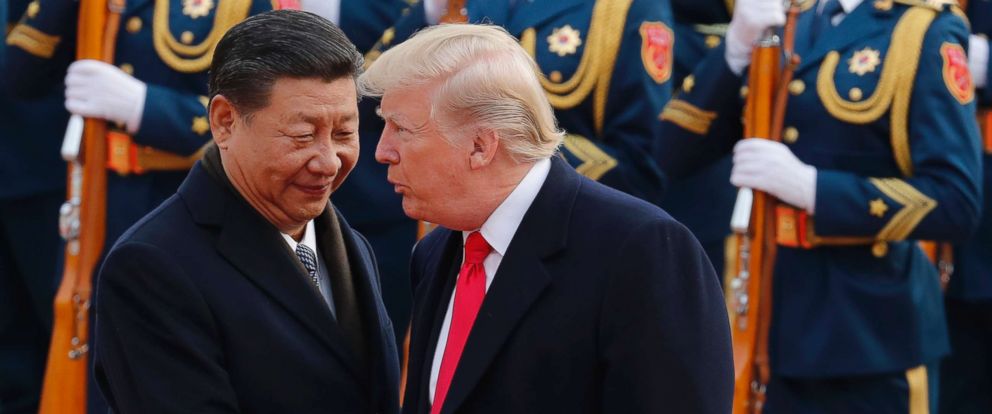Editor’s note: This article, written by a “blue collar conservative”, shows the trade policy divide within the GOP in relation to the globalist conservatives.
Trade talks between China and the United States concluded this week with every indication that a deal can be had. Success is still far from a foregone conclusion, and the thorny international issues of North Korea, Taiwan and the South China Sea could hinder a final arrangement. But it looks as if one of President Trump’s most roundly criticized moves, the implementation of tariffs on many Chinese goods, could prove a master stroke.
[Henry Olsen | January 10, 2019 | Washington Post]
Elite consensus on trade with China had long held that overall gains to U.S. consumers outweighed whatever harm China’s manipulation had done to some segments and regions. If China manipulated its currency to allow its producers to underprice U.S. firms, that was just a stupid subsidy that U.S. consumers should bank. If it forced or cajoled U.S. firms to disclose proprietary technology as a condition of working in China, which Chinese firms could later use to compete with those same firms, that was just unfortunate. If it refused to enforce U.S. intellectual property protections and allowed the outright theft of intellectual property, well, that was bad and merited a response — perhaps a strong scolding.
Actually doing anything that could alleviate these misdeeds was beyond the pale. Americans were making money, and nothing ought to disturb the gravy train that was funding so many Wall Street and CEO bonuses.
I have a saying when it comes to any type of negotiations: If you can’t walk away, you will overpay. For nearly 20 years, American leaders of both parties had shown they were not willing to even contemplate walking away. Is it any wonder that for decades, many Americans overpaid in terms of lost jobs, declining wages and crumbling communities?
Trump ran to reverse those trends. The elites in both parties heard his talk and immediately labeled him a protectionist. I guess those are fighting words on college campuses and in corporate boardrooms, but in places such as Newton, Iowa, they were a compliment. That’s because people saw what Trump would be trying to protect: their jobs, their wages and their towns.
Trump seems to be willing to walk away from bad deals. He knew we were overpaying, and he knew that quiet efforts to cajole better behavior had largely fallen on deaf ears in Beijing. So he turned the tables and started to walk away.
That’s all the tariffs were ever meant to do — serve as the stick that would push China to the bargaining table. Trump had to be willing to follow through if that tactic failed, and for the better part of a year he held firm. But in Argentina last month, the Chinese, faced with data showing that their economy was slowing down as ours roared ahead, asked for a truce. Trump accepted, and that’s where we stand.
This should serve as a wake-up call to business leaders, economists and politicians. Tough talk backed by tough action can get results. A nation does have to worry about the distributional effects arising from market transactions. It’s good business to pay attention to your home country and its citizens, even if the shareholders might get a slightly smaller return.
Leaders of other nations have always known this and been much savvier in negotiating their “free trade” deals. Former Canadian prime minister Stephen Harper says as much in his recent book, “Right Here, Right Now,” in which he quietly remarks how he conducted trade negotiations to ensure that key Canadian industries were not unduly harmed and that the gains from the resultant agreements would be spread around the country. It turns out that in our blinkered worship of market fundamentalism, we were the saps giving away the subsidies — but instead of coming from our government, they were coming from our people.
I think freer trade does help people, but I also believe that economics is always subordinate to politics. We should have learned from the Great Depression that an economic system that excludes a quarter of a nation’s citizens cannot be sustained. That is what gave rise to the New Deal. The pre-Trump system did not exclude that many people, but it was giving an increasing number of them a Raw Deal. So it should have been no surprise that these people voted in a dealmaker to reshuffle the deck and start the game over.
We do not yet know how the new game will end. Trump may not get the deal we need, or he might blunder and overpay in a quest to sign anything he can call a success. But for now, all the signs look good. More importantly, the signs give people hope that leaders can be responsive to their citizens and that elections can produce change. That hope alone is worth the gamble he has taken.













